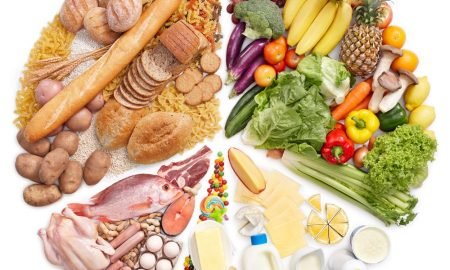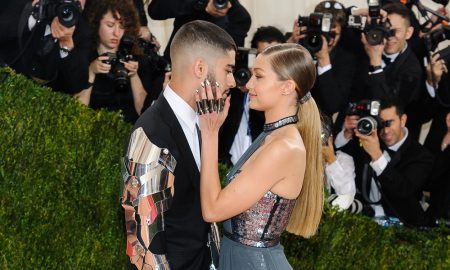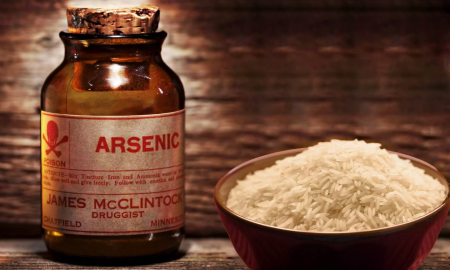
Experts Reveal The Reason Why You Have Headaches After Eating

Have you ever wondered why after having a delicious lunch or dinner, you’re suddenly hit with an intense headache when you’re full? You find yourself holding your head and closing your eyes as you can feel your head pounding, throbbing so hard you feel like banging it against the wall just to have some sort of relief?
Why do you get headaches right after eating, by the way? The health experts reveal the reason behind your headaches and what you can do to treat it.
Too Much Sugar
According to health experts, one of the culprits behind your headache after having a meal is sugar. The sugar you eat from eating rice and sweets like cookies, candies, or ice cream as your dessert makes you feel bloated and sluggish. Medhat Mikhael, M.D, at Memorial Care Orange Coast Medical Center says the sugar causes your blood sugar levels to spike up and drop quickly.

The sudden spike in your blood sugar after splurging in sweets can trigger your headache.
These sudden changes could result in a reactive hypoglycemia or also known as the post-meal low blood sugar (due to the quick spike and drop). This causes you to feel dizzy and lightheaded. Aside from that, you might also feel weak, a little shaky, and sweaty according to Mayo Clinic. To prevent this from happening, you need to eat sugar in moderation and be observant of your body. If you feel like an impending headache is coming, that’s your cue to stop eating sweets.
You Ate a Trigger Food
Most processed foods and drinks like cheeses, fancy charcuterie, and your favorite red wine all contain tyramine. This is an amino acid that can trigger migraines and headaches in people prone to them.
Aside from that, the health experts recommend you limit eating processed foods filled with chemicals and preservatives like nitrates, sulfites, and MSG since they increase the blood flow to the brain. These preservatives are often found in processed meats, alcohol, canned soup, and soy sauce according to the National Headache Foundation.
Too Much Salt
If you don’t have a sweet tooth, then the health experts suspect you might be a salt food lover. Eating foods rich in salts like frozen foods, pasta sauces, fries, tomato juice, and other processed foods can trigger a painful throbbing in your head.
According to British Findings, most people who consume more sodium (around 8,000 mg per day) are more prone to headaches by 33% compared to those who only consume half that amount of sodium per day.

Excess sodium intake causes water weight, which may also be the culprit behind your weight gain.
Meanwhile, the American Heart Association recommends consuming no more than 1,500 mg of salt every day for optimal health. They add that excess sodium causes your blood volume to thicken, eating up more space in your blood vessels.
Likewise, the blood vessels will expand to accommodate your blood. The sudden expansion triggers your headache. Aside from that, excess sodium causes your body to hold water – also known as water weight.
You Hurt Your Jaw
If you tend to eat crunchy or chewy foods and you noticed how your head throbs while eating it, then you might have a myofascial pain disorder (MPD). MPD is a type of pain of the muscles triggered when you move your jaw by eating, clenching, or straining hard according to Daria Hamrah, D.M.D., The strain can also lead to an achy head. To alleviate a headache, you feel, the health experts recommend you apply ice on your jaw to reduce the strain while taking an anti-inflammatory pain medication.
If the symptoms persist, you can have it checked with your dentist. The health experts also say you can trigger MPD if you clench your jaw during sleep. But this can be remedied by wearing a night guard to keep your clenching at bay according to Hamrah.
You Have Food Intolerance

Eating foods that trigger autoimmune disease like dairy or gluten can also trigger your headache.
Do you have food intolerance for dairy or gluten? If so, the health experts say you might’ve eaten a trigger food that triggers your food intolerance. According to studies, people with celiac disease suffer migraines when they eat even a tiny bit of food containing gluten. The symptoms also vary depending on experience and tolerance.
More in Physical Fitness
-
`
If You Don’t Know THIS, Your Weight Loss Diet Won’t Work
For our bodies to function at full capacity and stay healthy, it is essential that we adopt a nutritious weight loss...
February 21, 2026 -
`
Get Crazy Rich As You Visit these “Crazy Rich Asian” Real-life Locations!
Last Summer, most Asians rejoiced when they watched the most-anticipated movie adaptation of the New York Times bestselling series, Crazy Rich...
February 21, 2026 -
`
Experts Reveal Planned Indulgences are Good For Your Health
Everyone loves eating food. Aside from the fact that we need to eat food as a necessity for our body to...
February 21, 2026 -
`
Experts Reveal the Best Gym Workout For You
Struggling to find the best workout to achieve your fitness goals? The fitness experts differentiate the circuit vs. interval training to...
February 19, 2026 -
`
Scottish Doctors May Now Prescribe Nature To Their Patients
When you’re feeling unwell, it is perfectly normal to have that desire to feel better because no one wants to get...
February 19, 2026 -
`
Everything You Need to Know about the Relationship of Soon-to-Be Parents Zayn Malik and Gigi Hadid
It’s hard to stay realistically optimistic these days primarily because of the Covid-19 pandemic that has left all of us unsure of what...
February 19, 2026 -
`
Experts Reveal Why Endearments or Pet Names Make Your Relationship Stronger
Whenever we see a couple, we often wonder why they won’t call their partner’s names. We hear them calling them “love”,...
February 19, 2026 -
`
What You Need To Know About Flexibility
Ever wanted to do handstands or poses like a yogi? The start could be simple stretches! According to Bryant Walrod, MD,...
February 19, 2026 -
`
Experts Reveal How to Deal and Overcome Changes in Your Business and Life
If one thing is constant and consistent in our business and life, that’d be change. The business world is struggling in...
February 19, 2026














You must be logged in to post a comment Login